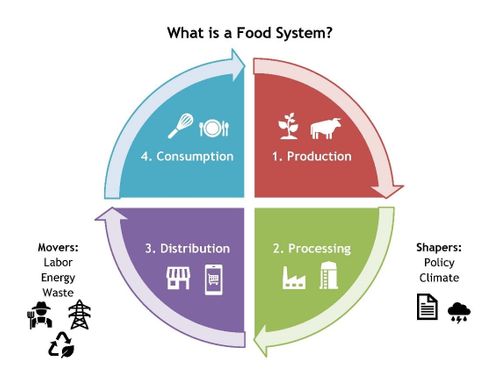In recent times, issues related to food policy and sustainability have garnered a lot of attention, with discussions happening across government departments, industries and the general populace, with increasing frequency.
The world population is expected to exceed over 9 billion by 2050, resulting in a higher demand for food production, and a higher environmental impact as well. However, the dwindling natural resources coupled with pollution and climate change have made it necessary to focus on sustainable production practices to ensure long-term food security.
Food policy, which forms the foundation on which the food industry operates, considers the manner in which our food is produced, processed, labeled, and sold. Food policies that are designed with sustainability in mind have a far-reaching impact on the food industry and play a crucial role in the creation of a more sustainable food system.
The food industry is one of the largest industries in the world, comprising of agriculture, manufacturing, and distribution. It has a substantial impact on the environment, including land use, water use, greenhouse gas emissions, and the use of pesticides and fertilizers. To make food production more sustainable, food policies must ensure that certain practices are enforced and implemented by the industry stakeholders.
One of the most critical aspects of sustainable food policy is the promotion of local food systems. Local food systems enhance the development of strong, sustainable agricultural communities that leverage the services and resources available at the local level. This gives rise to farms that practice sustainable farming methods and use environmentally friendly practices.
Food policy should also focus on decreasing food waste to lower environmental pollution levels. Every year a third of the food is wasted due to poor storage, harvesting, and processing methods, and by reducing food waste, resources such as water, land, and energy can be conserved.
The food industry’s sustainability is vital to ensure a stable and healthy food system that can meet the ever-increasing demands of the population. By implementing sustainable food policies, not only will the industry experience long-term growth, but also future generations will have access to a healthy, diverse, and resilient food system.
In conclusion, sustainable food policies aim to make food production environmentally friendly, socially equitable, and economically viable. It is the responsibility of all stakeholders, including the food industry, governments, and citizens alike, to ensure that we work towards creating a sustainable food system. The time to act is now, and by implementing sustainable food policies and practices, we can create a better future for all.











